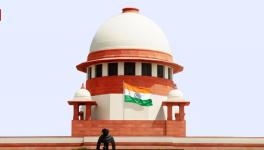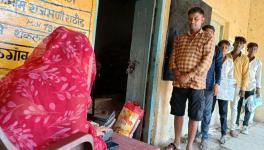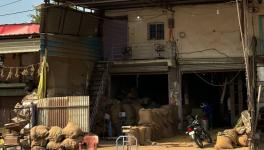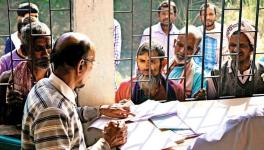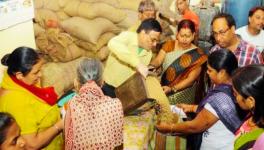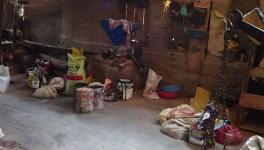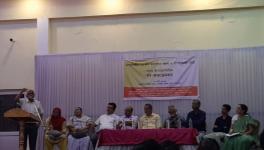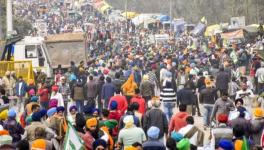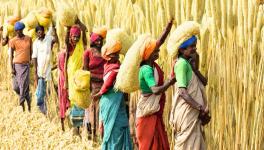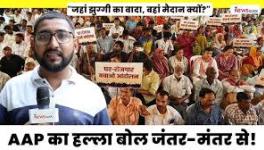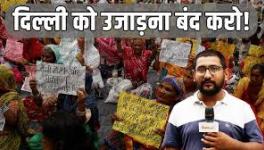Direct Benefit Transfer has Virtually Failed in PDS
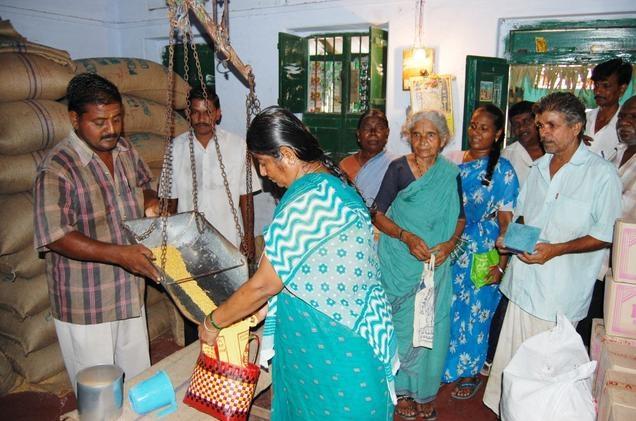
A recent report in the Financial Express rued the fact that the Direct Benefit Transfer (DBT) scheme – which aims to replace all forms of welfare schemes with cash transferred directly into the bank accounts, preferably Aadhaar-seeded, of the beneficiaries – has been “a virtual non-starter” in the Public Distribution System (PDS) for subsidised food grains.
This adds to the growing clamour in Right-wing sections of the media to push the Direct Benefit Transfer (DBT) scheme in the PDS.
In early August, a BJP MP had written to the Centre to implement DBT in PDS across the country. These are only the latest instances.
As the FE article that expressed alarm over DBT-food being “in jeopardy” pointed out, “DBT-food has hardly progressed from the three small pilot projects launched in October 2015 in certain localities in the Union territories (UTs) of Chandigarh, Puducherry and Dadra and Nagar Haveli.”
It is but a small mercy that DBT-food has not progressed, at least with the current infrastructure and systems – if the results of the pilot projects in the three small UTs of Chandigarh, Puducherry and Dadra and Nagar Haveli are anything to go by.
In February, a study commissioned by Niti Aayog and the Department of Food of the Union government, revealed that the pilot of DBT in place of subsidised foodgrains had been a miserable failure in the three UTs, even nearly a year after it was launched.
Conducted by the Abdul Latif Jameel Poverty Action Lab (J-PAL) South Asia, the Second Quarterly Report titled ‘Process Monitoring of Direct Benefit Transfer in the PDS’ was submitted in August 2016.
It carried out two studies, one in the period from September 2015 – when the pilot began – till February 2016, wherein it surveyed 5,044 beneficiaries. The second study period was June-July 2016, and 3,069 beneficiaries were surveyed.
The report, a copy of which is with Newsclick, was analysing “implementation against the goal of 100% of beneficiaries receiving 100% of entitlements 100% of the time”.
The most vaunted benefit of DBT has been that it would plug the leakages in the PDS, ensuring that only eligible beneficiaries got the ration, and thereby result in massive savings for the government. The FE article says that “annual savings to the Centre on its food subsidy bill from DBT-food is estimated to be Rs 30,000 crore”.
“The DBT-food scheme could help reduce Food Corporation of India’s (FCI) operational costs significantly,” it adds.
However, the study found that less than 60% of cash actually reached beneficiaries.
“Of the amount disbursed from UT administrations for sample HHs (households), less than 60% is verifiably getting into the hands of beneficiaries”, the report stated.
From September 2015 to June 2016, the governments of the three UTs claimed they had distributed Rs 1,05,50,207 into beneficiaries accounts after stopping their subsidised grains. But the study found that Rs 42,42,323 could not be traced to the beneficiaries.
In fact, the DBT amount per family was “consistently short”, taking into account both the additional cost of grains in the market (market prices) and the additional cost of accessing and using DBT (opportunity costs of access).
Each family across the three UTs had to pay more – between Rs 103 and Rs 207 per month per family – to buy the same amount of foodgrains they were earlier getting through ration shops.
But the J-PAL report also revealed worrying slippages in implementation. “Out of 2018 beneficiaries in our sample receiving cash at the start, 356 stopped receiving any cash along the way.”
Chandigarh fared the worst in the slippage, as nearly half the beneficiaries who were receiving payment in the beginning stopped receiving any payment.”
Of all beneficiaries, 25% had formally expressed grievances with the DBT system.
Moreover, the study found that Rs 42,42,323 could not be traced to the beneficiaries accounts. The governments of the three UTs had claimed they had disbursed Rs 1,05,50,207 between September 2015 and June 2016. A more detailed review of the study can be found here.
The FE article points out that “the food ministry has been urging states to adopt cash transfer model of DBT especially in urban areas and subsequently scale it up.”
But it complains that “most state governments have been reluctant to roll out the scheme as it would entail winding up of their respective civil supplies corporations, a vestige of political patronage.”
Given the results of the study commissioned by the government itself, we can only be thankful that state governments have “been reluctant” to adopt DBT for PDS.
Given the current shortcomings, the exclusions and even extra costs, of the DBT for food, the purpose of the National Food Security Act – which was passed in 2013 after much effort and a sustained campaign by activists to guarantees 5kg of rice or wheat per person at Rs 2 per kg and Rs 3 per kg, respectively, every month to nearly 82 crore of the country’s population.
DBT is currently operational in 314 schemes across 51 ministries, including the PAHAL scheme for delivery of LPG subsidy.
Get the latest reports & analysis with people's perspective on Protests, movements & deep analytical videos, discussions of the current affairs in your Telegram app. Subscribe to NewsClick's Telegram channel & get Real-Time updates on stories, as they get published on our website.









